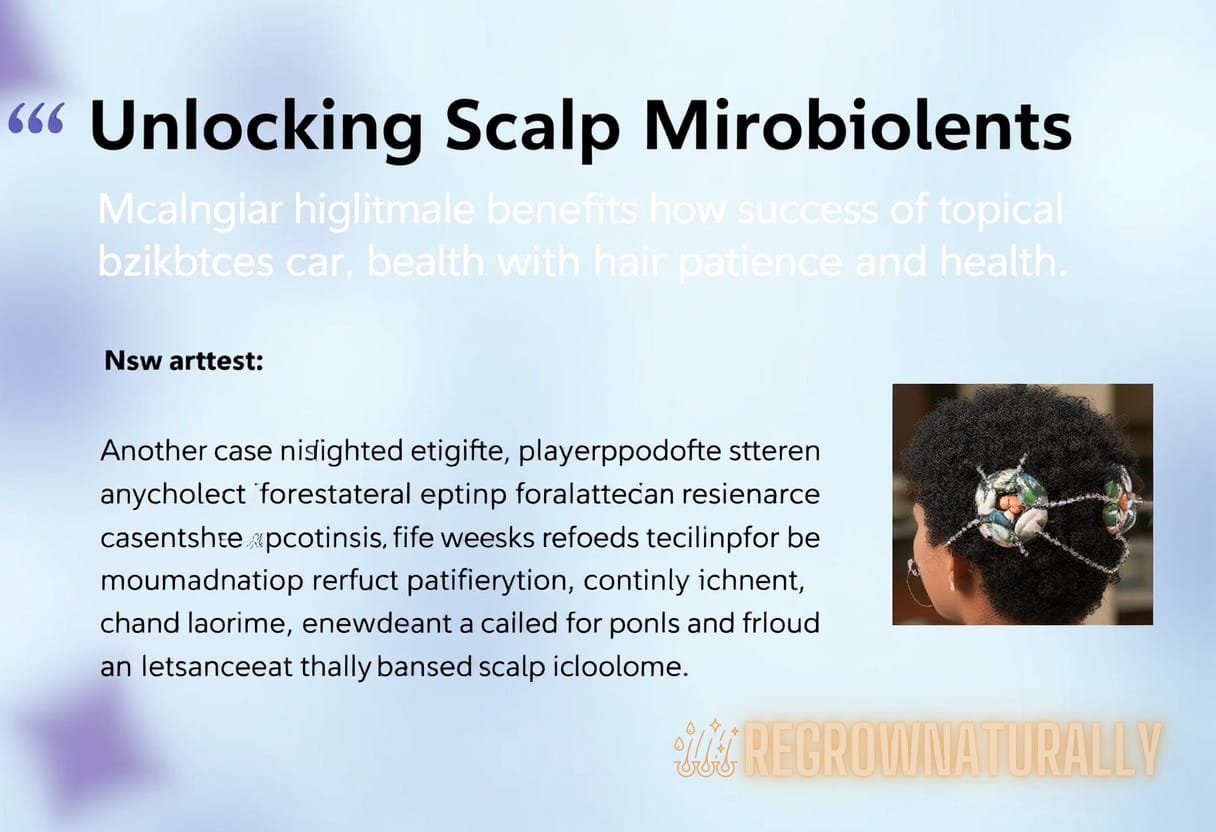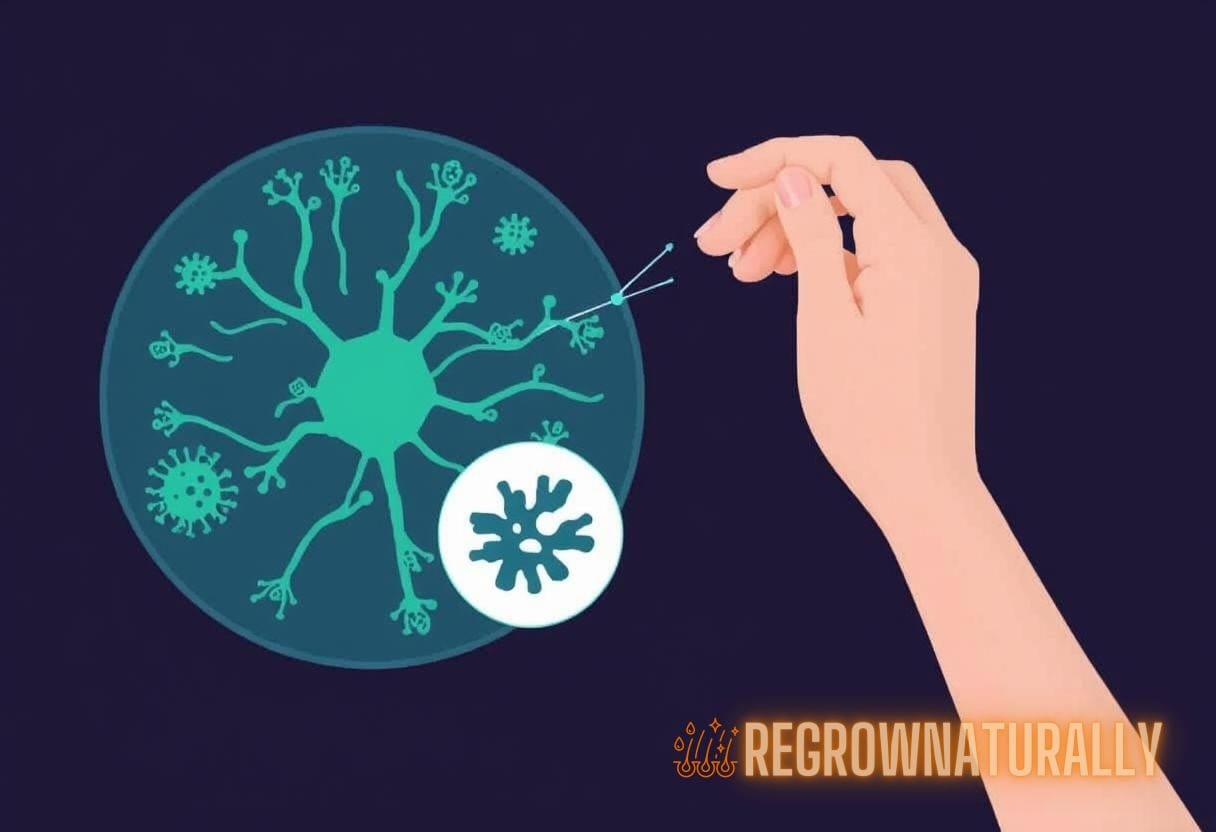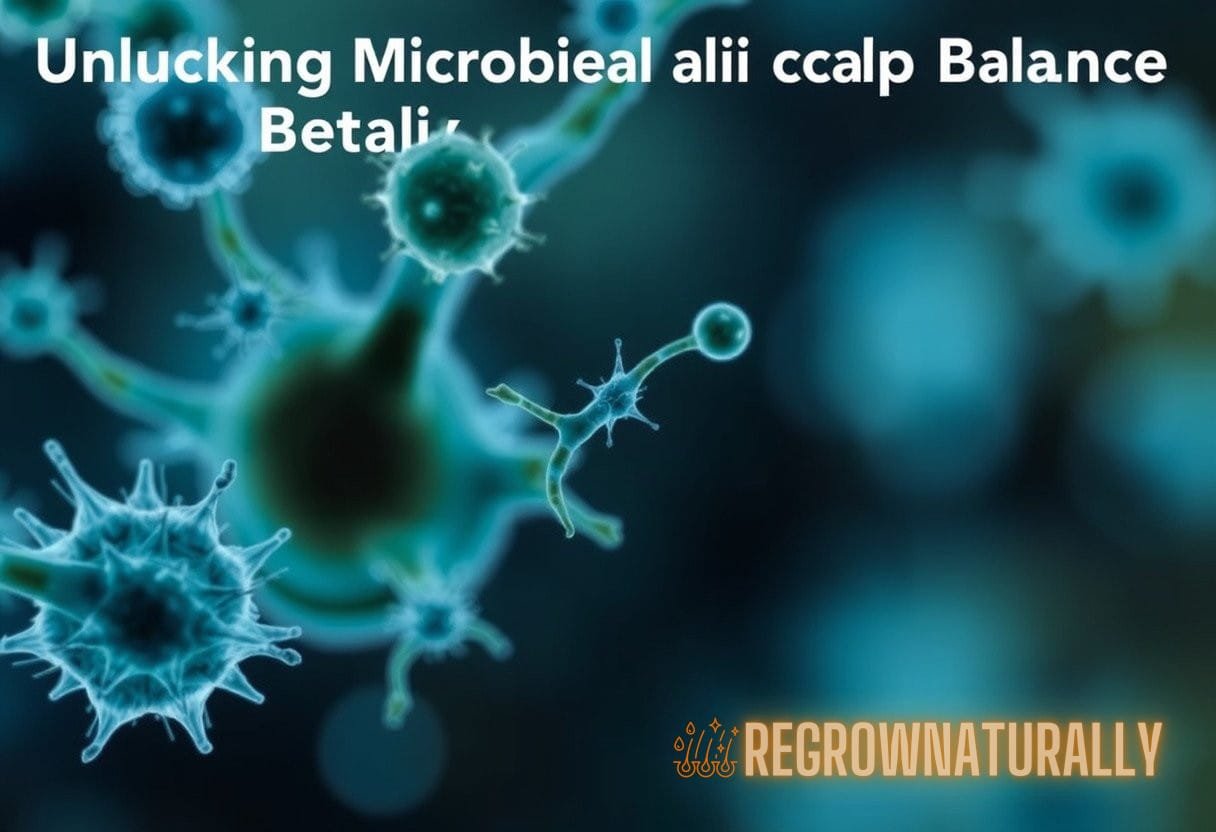Microbial Synergy: The Untapped Potential of Scalp Bacteria in Enhancing Hair Resilience and Health
In recent years, a growing body of research has highlighted the significance of the scalp microbiome benefits in maintaining healthy hair and scalp conditions. The human scalp hosts a complex ecosystem of microorganisms that includes bacteria, fungi, and viruses, all of which play a crucial role in scalp health.
Understanding the Scalp Microbiome
The scalp microbiome refers to the diverse array of microorganisms living on the surface of the scalp. These microorganisms interact in ways that can either promote scalp health or lead to various conditions such as dandruff, hair loss, and scalp irritation. Key players in this microbial community include:
- Bacteria: Predominantly, the genera Cutibacterium and Staphylococcus are found on the scalp.
- Fungi: Malassezia species are common fungal inhabitants linked to seborrheic dermatitis.
- Viruses: Bacteriophages that infect bacteria, impacting bacterial populations on the scalp.
Research shows that an imbalance in these microbial populations can lead to problems such as inflammation, which can adversely affect hair growth. It is essential to maintain a healthy balance for optimal scalp and hair function.
The Role of Bacteria in Scalp Health
Bacteria on the scalp contribute to maintaining a healthy skin barrier, warding off pathogenic microorganisms. They perform several vital functions, which include:
- Producing Antimicrobial Substances: Certain scalp bacteria, such as Cutibacterium acnes, produce lipids that can prevent the growth of harmful pathogens.
- Regulating pH Levels: The metabolic activities of scalp bacteria help to regulate the pH of the scalp, keeping it slightly acidic, which is advantageous for scalp health.
- Interacting with the Immune System: The presence of beneficial bacteria helps modulate the immune response, reducing inflammation and irritation.
These factors underscore the importance of the scalp microbiome benefits in supporting hair resilience and overall health. Studies indicate that a balanced scalp microbiome is associated with less dandruff and healthier-looking hair.
Exploring the Impact of Scalp Microbiome on Hair Growth
Hair follicles are sensitive to the surrounding environment, including the microbiome. A well-balanced scalp microbiome has been shown to promote hair growth in several ways:
- Reducing Inflammation: Chronic inflammation can inhibit hair follicle cycling. A healthy microbial environment can reduce inflammatory responses.
- Enhancing Nutrient Absorption: Bacteria play a role in breaking down compounds, making nutrients more bioavailable for hair follicles.
- Regulating Hormones: Certain scalp bacteria may influence the hormonal environment that affects hair growth cycles.
For example, a study published in the Journal of Dermatological Science highlighted that the application of specific probiotic strains led to an increase in hair density in participants suffering from hair thinning.
Case Studies and Real-World Examples
In a prominent study involving a group of 120 individuals, researchers observed notable differences in the scalp microbiomes of those experiencing hair loss compared to those with healthy hair. The study found:
- Participants with hair loss showed elevated levels of certain pathogenic bacteria.
- Healthy participants had a more diverse bacterial community, emphasizing the need for stability in microbial diversity.

Another case highlighted the success of topical probiotics in restoring scalp health for patients with psoriasis. Within weeks, participants reported reduced itching and flaking, showcasing the benefits of maintaining a balanced scalp microbiome.
How to Nurture Your Scalp Microbiome
To reap the scalp microbiome benefits, consider implementing the following practices to promote a healthy microbial environment:
- Use Gentle Cleansers: Look for sulfate-free shampoos that do not strip the scalp of natural oils, which can foster a healthier microbiome.
- Incorporate Probiotics: Topical probiotics can reinstate balance and help combat imbalances. Products formulated with live microorganisms can help improve scalp conditions.
- Maintain Scalp Hydration: Keeping your scalp moisturized with the right products promotes a favorable environment for beneficial bacteria.
Additionally, those interested in understanding holistic scalp health can explore topics related to healthy scalp care to enhance their knowledge.
Science Behind the Microbial Interplay
The interplay between different microbial species influences the overall health of the scalp. Research shows that competition and cooperation among bacteria in the microbiome can determine their effectiveness in crowding out harmful species.
For example, certain species of lactobacilli produce lactic acid, which creates an environment where pathogenic bacteria cannot thrive. Additionally, research points to the possibility that specific bacterial strains can produce enzymes that break down scalp irritants, further enhancing scalp health.
Challenges in Scalp Microbiome Research
While the potential of the scalp microbiome is promising, several challenges remain within the field of research. These include:
- Lack of Standardization: Different studies may employ varied methods for microbiome analysis, complicating comparability.
- Complex Interactions: Not all interactions within the microbiome are fully understood, leading to gaps in knowledge regarding optimal compositions.
- Variability Among Individuals: Personal differences such as genetics, diet, and environment can greatly influence individual microbiome compositions.
As researchers continue to explore these challenges, it is critical to foster collaborations between microbiologists, dermatologists, and cosmetic formulators to develop targeted treatments that cater to maintaining a balanced scalp microbiome.
The Future of Scalp Health and Hair Growth
The belief that the scalp microbiome benefits hair growth and resilience opens new avenues for hair care. As the pharmaceutical and cosmetic industries begin to embrace probiotic treatments, we might soon see a variety of products tailored specifically towards nurturing the scalp microbiome.
Continuing research in this realm may lead to groundbreaking treatments for hair loss and scalp conditions, making scalp microbiome management an integral part of overarching dermatology practices and hair care routines.
Conclusion
The untapped potential of scalp bacteria in enhancing hair resilience and health cannot be overstated. Through understanding the delicate interplay of the scalp microbiome, we can unlock new pathways to maintain and improve scalp health, all while fostering a vibrant and resilient head of hair.


